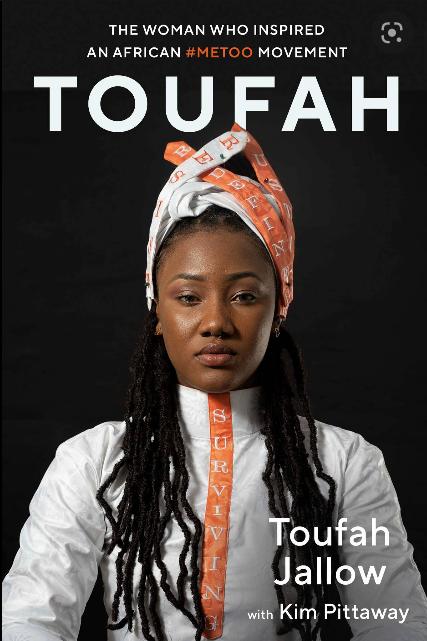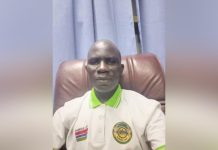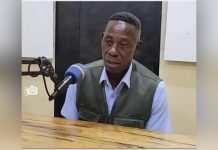Africa-Press – Gambia. The photograph on the cover of Toufah, by Gambian-Canadian Toufah Jallow, shows the author staring directly into the camera. Her clothes and head wrap bear the words “surviving,” “resist,” “redefine” and “justice,” setting the tone for a memoir about her journey from rape victim to #MeToo activist and determined changemaker in her home country of Gambia and throughout West Africa.
The sexual assault that changed Jallow’s life in 2015 was even more traumatizing because the perpetrator was Gambia’s dictator/president, Yahya Jammah. Jallow, then a 19-year-old winner of a competition for the country’s brightest young women, was promised a scholarship to study abroad. Instead, Jammah proposed marriage. When she rejected him, he lured her to his mansion, ostensibly for a Ramadan observance. While religious leaders intoned prayers in his garden nearby, he drugged and sodomized her.She ran for her life, smuggling herself over the border to Senegal, where she lived in hiding from Jammah’s operatives until she was given a path to permanent residence in Canada. With blunt description and mature analysis, she describes her transformation from a teenage student in a comfortable family to a penniless outcast. She was adrift in a foreign environment, fearful for her future and her family’s safety at homeOver the next few years, Jallow focused her energy on scraping by financially in Toronto, with a brief stint in Vancouver. Her struggle took place concurrently with Jammah’s being deposed in 2016 and a pledge by the new president to hold Jammah and his enablers accountable for the imprisonment and murder of political opponents and journalists, the slaughter of students and refugees and the pillaging of the Gambian treasury. It also took place alongside U.S. president Donald Trump’s election and revelations about his aggressions toward women, as well as the #MeToo movement that led to the conviction of Hollywood mogul Harvey Weinstein on sexual assault charges.
With therapy, Jallow finally gained confidence to speak openly, identifying herself and naming her attacker. The people who helped her escape supported her through the glare of press conferences and testimony at Gambia’s Truth, Reconciliation and Reparations Commission in 2019. As the first woman to make this kind of public declaration, she was called a liar, a whore, a gold digger and more by Jammah’s supporters and those defending the patriarchal structure of Gambian society. But negative attacks were mitigated by messages of support and an overwhelming number of women revealing their own assaults, many for the first time. They saw in her someone they could trust with their stories.
She established the Toufah Foundation to support survivors of sexual assault, and has taken part in United Nations and other human rights initiatives.
Throughout, Jallow expresses the same frustrations that keep women everywhere from reporting sexual assaults — that a charge of rape morphs into “she was allegedly raped,” whereas accusations of robbery, murder, amd other acts are rarely doubted. In Gambia, a sexual assault is seen as a stain on a family’s honour and the victim is often blamed. Because of this, the criminal goes unpunished, while victims suffer in secrecy for life. “I was lucky,” she says. “I had gone to therapy, learned to centre and calm myself, even when my trauma threatened to knock me over again.”
Jallow credits Canadian journalist and co-author Kim Pittaway “for helping me focus my voice” in writing this compelling narrative. Jallow joins others calling for justice and challenges to the culture of misogyny. Asserting her strengths, she continues this work in Gambia and Canada. She is now at school in Toronto, studying to be a counsellor for assaulted women and children.
Harriet Zaidman is a children’s and freelance writer in Winnipeg. Her latest young adult novel, Second Chances (Red Deer Press), is set in the polio epidemic of the 1950s.
For More News And Analysis About Gambia Follow Africa-Press






